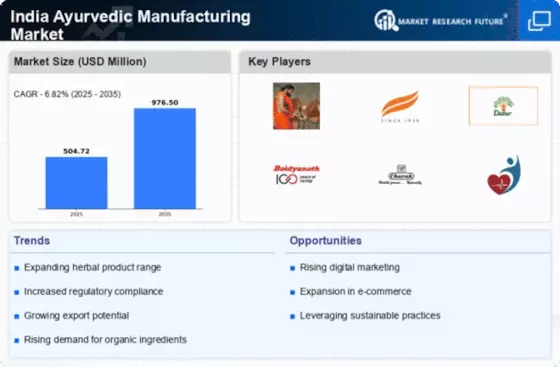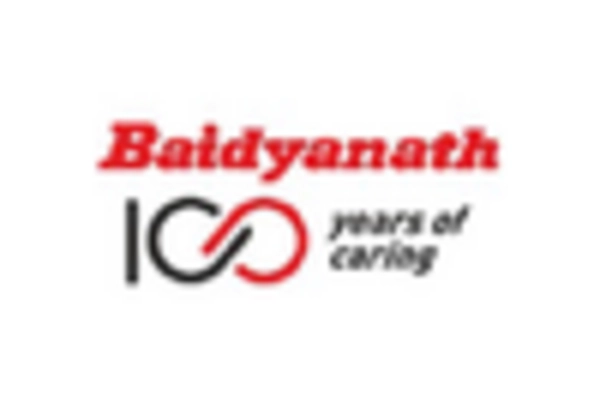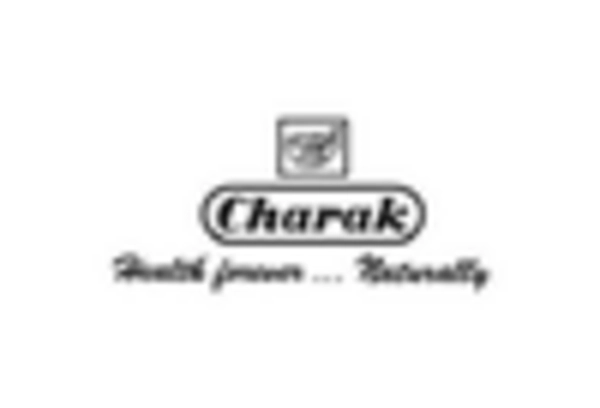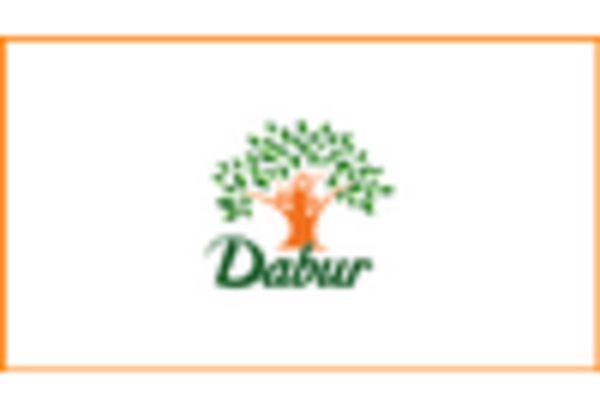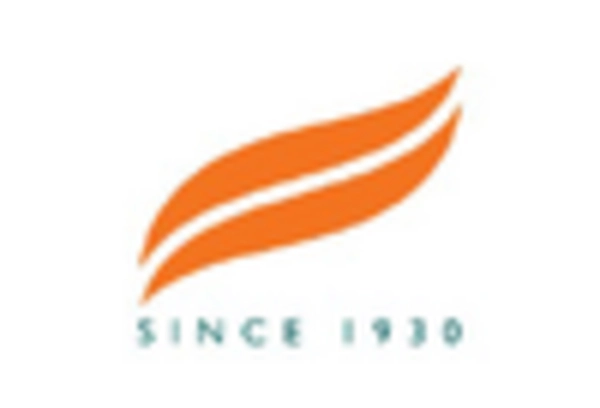The Ayurvedic Manufacturing Market in India is characterized by a dynamic competitive landscape, driven by increasing consumer demand for natural and holistic health solutions. Key players such as Patanjali Ayurved (India), Himalaya Wellness (India), and Dabur India (India) are at the forefront, each adopting distinct strategies to enhance their market presence. Patanjali Ayurved (India) has focused on aggressive expansion through a vast distribution network, while Himalaya Wellness (India) emphasizes innovation in product development, particularly in herbal supplements. Dabur India (India), on the other hand, has been enhancing its digital transformation efforts to reach a broader audience, indicating a collective shift towards leveraging technology in operations.
The business tactics employed by these companies include localizing manufacturing to reduce costs and optimize supply chains, which is crucial in a moderately fragmented market. The competitive structure is shaped by the presence of numerous small and medium enterprises alongside these larger players, creating a diverse ecosystem. This fragmentation allows for niche market opportunities, while the collective influence of major companies drives overall market growth and innovation.
In December 2025, Patanjali Ayurved (India) announced the launch of a new line of organic herbal teas aimed at health-conscious consumers. This strategic move not only diversifies their product portfolio but also aligns with the growing trend towards wellness and preventive healthcare. The introduction of these teas is likely to enhance brand loyalty and attract a younger demographic, further solidifying Patanjali's market position.
In November 2025, Himalaya Wellness (India) unveiled a partnership with a leading e-commerce platform to enhance its online sales capabilities. This collaboration is significant as it allows Himalaya to tap into the rapidly growing online retail space, thereby increasing accessibility to its products. The partnership is expected to drive sales growth and improve customer engagement through targeted digital marketing strategies.
In October 2025, Dabur India (India) launched an initiative to integrate AI into its supply chain management processes. This strategic action aims to enhance operational efficiency and reduce lead times, which is critical in meeting the rising consumer demand for Ayurvedic products. By leveraging AI, Dabur is positioning itself as a forward-thinking leader in the market, likely setting a precedent for others to follow.
As of January 2026, the competitive trends in the Ayurvedic Manufacturing Market are increasingly defined by digitalization, sustainability, and the integration of advanced technologies such as AI. Strategic alliances are becoming more prevalent, enabling companies to pool resources and expertise to navigate the complexities of the market. Looking ahead, competitive differentiation is expected to evolve from traditional price-based strategies to a focus on innovation, technological advancements, and supply chain reliability, reflecting a broader shift in consumer preferences towards quality and sustainability.


